Examination Pattern
The University adopts the system of continuous evaluation consisting of Progress Review Examination (PRE) during the semester and End Semester Examination (ESE) for assessing the performance of the students during the programme of study. It is mandatory to appear in ESE failing which result will be declared “Failed” for that particular subject. The University conducts examinations for all such academic programmes approved by the Academic Council and as it may notify from time to time for awarding Bachelor’s Degrees /Master’s Degrees. Under-graduate /Post-graduate, Diploma, as the case may be, as per the prescribed Schemes of Teaching & Examinations and Syllab are approved by the Academic Council. Examinations of the University shall be open to regular students i.e. candidates who have undergone a course of study in the University for a period specified for that programme of study in the Scheme of Teaching & Examination and Syllabi. The Academic council may allow any other category of candidates to take the University Examination for any specified academic programme subject to the fulfilment of such conditions as may be laid down by the Academic Council from time to time. Provided further, that a student may be debarred from appearing in the End Semester Examination as provided in Clause 8 of this Ordinance or as provided in any other Ordinance of the University.
Promotion to Higher Semesters
BBA / B.Com / Diploma – (n-2) Year:
A student may carry backlogs from preceding semesters, but not from the (n-2) year, where ‘n’ is the current academic year of admission.
Admission to the 3rd year is not allowed if the student has a backlog in the 1st year.
B.Tech – (n-3) Semester:
Students may carry earlier semester backlogs, except from (n-3) semesters, where ‘n’ is the current semester.
M.Tech – (n-2) Semester:
Students may carry preceding semester backlogs, but none from (n-2) semesters (based on their current semester).
Promotion to the 4th semester requires clearing all courses of the 1st year.
Project submission is only permitted after clearing all courses, labs, and seminars from previous semesters.
B.Tech Lateral:
All required bridge courses must be cleared before entering the 5th semester.
Credit-Based System
Each Theory Course, Laboratory Course, Project, Dissertation, Seminar, etc., carries specific credit values as outlined in the scheme applicable to the student’s branch, semester, and school.
Examination for Theory/Lab Courses
- Teacher Assessments: 20%
- Mid Semester Examination (MSE): 30%
For each Laboratory course, the Progress Review Examination (PRE) carries a weightage of 60%.
The Grading System
Applicable for students of SOE (B.Tech / M.Tech / Diploma), SOM (BBA & MBA), and SOS (B.Sc & M.Sc) admitted from the 2019 batch onwards.
| Grade |
Range of Marks (Theory & Practical) [PRE + ESE] |
| A+ |
M ≥ 90 |
| A |
80 ≤ M < 90 |
| B+ |
70 ≤ M < 80 |
| B |
60 ≤ M < 70 |
| C+ |
50 ≤ M < 60 |
| C |
40 ≤ M < 50 |
| F |
M < 40 |
Minimum Passing Marks (Weightage)
| School |
Theory |
Practical |
| PRE |
ESE |
Total |
PRE |
ESE |
Total |
| SOE |
30% |
30% |
40% |
30% |
30% |
40% |
| SOM |
30% |
30% |
40% |
— |
— |
40% |
| SOS |
— |
— |
40% |
— |
— |
40% |
For Example:
| School |
Theory |
Practical |
| PRE |
ESE |
Total |
PRE |
ESE |
Total |
| SOE |
15/15 |
15/15 |
40/100 |
18/60 |
12/40 |
40/100 |
| SOM |
15/50 |
15/50 |
40/100 |
— |
— |
40/100 |
| SOS |
— |
— |
40/100 |
— |
— |
20/50 |
Note: The grading system for batches 2015 to 2018 remains unchanged (relative grading continues as previously followed).
SGPA / CGPA Calculations
Grading System – Effective from 2024 Batch Onwards
Note: The grading system remains unchanged for old batch students admitted from 2019 to 2023. The revised system applies to students admitted in 2024 and onwards across all schools (SOE, SOS, SOM).
Implementation is intended to maintain uniformity of grading at the university level for:
- SOE – B.Tech., M.Tech., Diploma
- SOM – BBA, MBA, B.Com., B.A.
- SOS – B.Sc., M.Sc.
Grading Table
| Letter Grade |
Grade Points |
Description |
Range of Marks (%) |
| O |
10 |
Outstanding |
>90 to ≤ 100 |
| A+ |
9 |
Excellent |
>80 to ≤ 90 |
| A |
8 |
Very Good |
>70 to ≤ 80 |
| B+ |
7 |
Good |
>60 to ≤ 70 |
| B |
6 |
Above Average |
>50 to ≤ 60 |
| C |
5 |
Pass and Average |
≥45 to ≤ 50 |
| F |
0 |
Fail |
< 45 |
| Ab |
0 |
Absent |
Absent |
SGPA Formula
SGPA = Σ(Ci × Gi) / Σ(Ci)
Where Ci is the number of credits of the i-th course and Gi is the grade point scored by the student in the i-th course.
Example:
Course 1 | Credit: 3 | Letter Grade: A | Grade Point: 8 → 3 x 8 = 24
CGPA Formula
CGPA = Σ(Ci × Si) / Σ(Ci)
Where Si is the SGPA of the i-th semester and Ci is the total number of credits in that semester.
Example for CGPA:
- Semester 1: Credit 20, SGPA 6.9
- Semester 2: Credit 20, SGPA 7.8
- Semester 3: Credit 20, SGPA 5.6
- Semester 4: Credit 20, SGPA 6.0
CGPA = (20×6.9 + 20×7.8 + 20×5.6 + 20×6.0) / 80 = 6.6
Minimum Passing Marks (Weightage) - For 2024 Batch and Onward
| School |
Theory |
Practical |
| PRE |
ESE |
Total |
PRE |
ESE |
Total |
| SOE, SOM, SOS |
40% |
40% |
45% |
40% |
40% |
45% |
Example:
| School |
Theory |
Practical |
| |
PRE |
ESE |
Total |
PRE |
ESE |
Total |
| SOE, SOM, SOS |
12/30 |
28/70 |
45/100 |
12/30 |
28/70 |
45/100 |
Table 4: Distribution of Divisions
| Division |
Criterion |
| First Division with Distinction |
CGPA ≥ 7.5 and minimum credits for the degree earned |
| First Division |
CGPA ≥ 6.0 but < 7.5 and minimum credits earned |
| Second Division |
CGPA ≥ 5.5 but < 6.0 and minimum credits earned |
| Third Division |
CGPA ≥ 5.0 but < 5.5 and minimum credits earned |
Note: CGPA to percentage conversion shall follow:
Equivalent Percentage = CGPA × 10
Rounded to two decimal places.
The candidate shall be awarded a certificate/diploma/degree upon successful completion of the required credits for their program.
Promotion Rule
- A student shall be promoted and may take admission in the 2nd semester immediately after the 1st semester end examination irrespective of any number of back papers.
- A student may take admission in the 3rd semester provisionally, immediately after the 2nd semester end examination. His/her admission shall be confirmed and he/she will be promoted to the 3rd semester provided he/she has earned a minimum of 50% credits including both 1st and 2nd semesters.
- A student shall be promoted and may take admission in the 4th semester immediately after the 3rd semester irrespective of any number of back papers in the 3rd semester.
- A student may take admission in the 5th semester provisionally, immediately after the 4th semester examination. His/her admission shall be confirmed and he/she will be promoted to the 5th semester provided he/she has earned a minimum of 50% credits including both 3rd and 4th semesters. Further, the student must clear all the papers of the 1st and 2nd semesters.
- A student shall be promoted and may take admission in the 6th semester immediately after the 5th semester with any number of back papers.
- Examinations of back papers of odd semesters shall be conducted along with odd semester end examinations, and examinations of even semester back papers shall be conducted with even semester end examinations.
- A special examination of the 5th semester shall be conducted along with the 6th semester for students who have cleared all the papers till the 4th semester.
- A special examination of the 6th semester shall be conducted after the declaration of end semester result. Only students having back papers in the 6th semester shall be eligible.
- A student may take admission in the 7th semester (Fourth year of UG) only after clearing all semesters up to the 6th semester.
- A student will be promoted and may take admission in the 8th semester provisionally, immediately after the 7th semester examination irrespective of the number of back papers in the 7th semester. A special examination of the 7th semester shall be conducted along with the 8th semester.
- A special examination of the 8th semester shall be conducted soon after declaration of results. Students with back papers in the 8th semester may appear in this special exam.
- A student may choose an Honours course in the fourth year by applying before the commencement of the year. A four-year UG Honours degree will be awarded to students who complete the program with at least 160 credits.
- Students securing 75% or above (or 7.5 CGPA) in the first six semesters and wishing to undertake research may choose a research stream in the fourth year. They must complete a research project/dissertation in their major under faculty guidance. Outcomes may be published, presented, or patented.
- If a student is detained or not promoted to a higher semester, they will be held back until backlog papers are cleared, within the maximum duration of the program. Internal assessment marks will be carried forward.
- For calculating 50% credit eligibility, both theory and practical courses shall be counted. Fractions of 0.5 shall be rounded up.
Downloads
-
♦ NPTEL Course Grading Procedure 
-
♦ Annexure I 
-
♦ SOP for Revaluation 
-
♦ Regulations on Use of Unfair Means & Disorderly Conduct 
-
♦ Revised Lateral Entry Course 





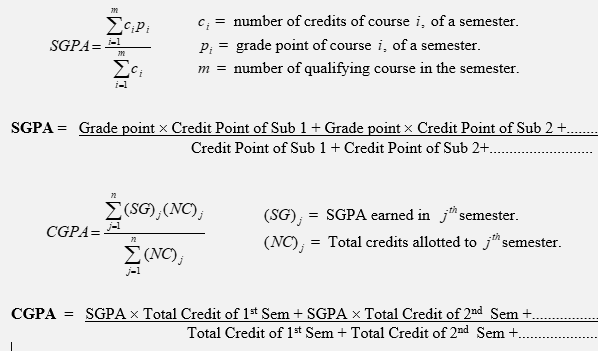
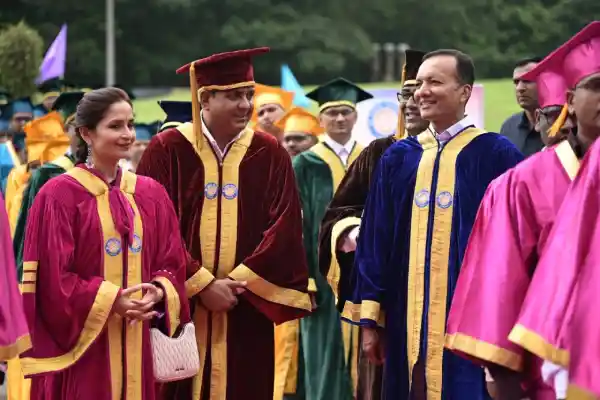
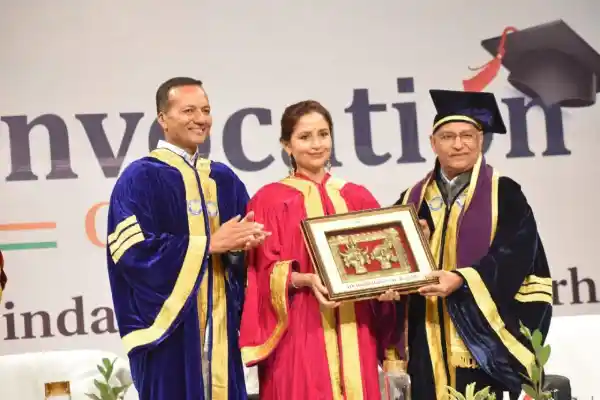

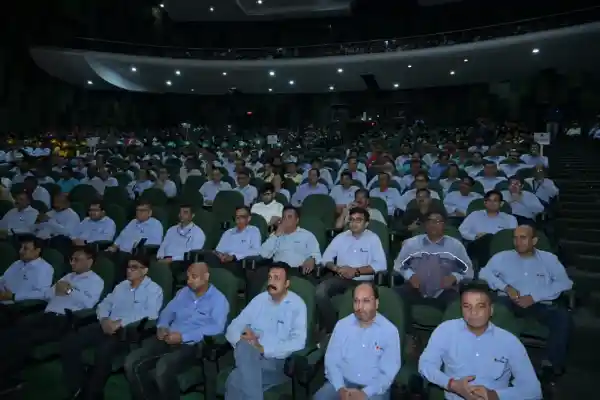
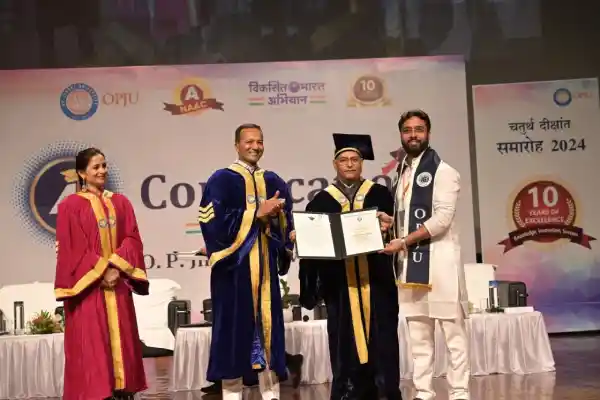
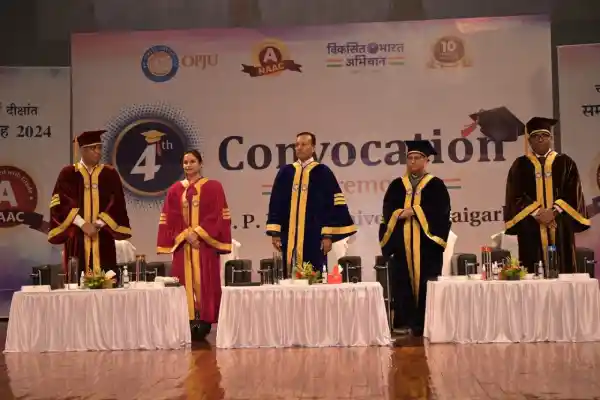
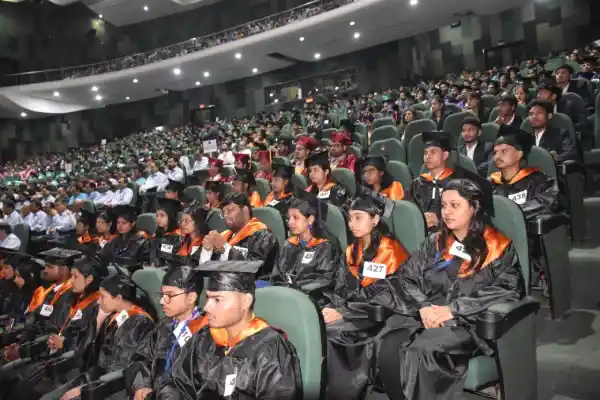
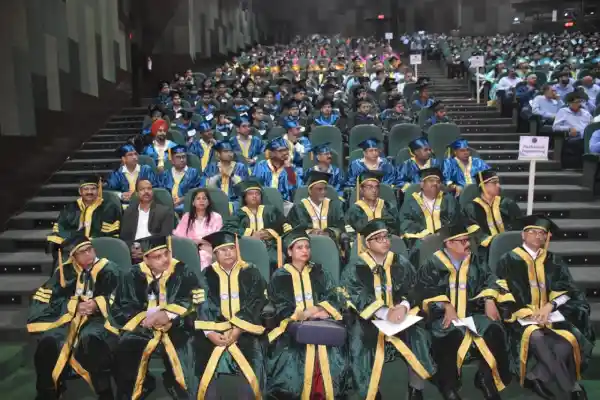
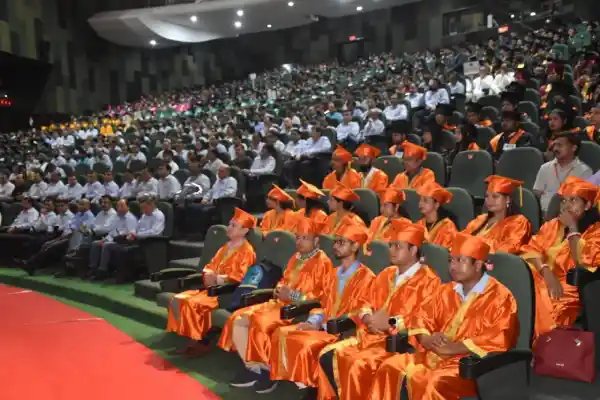
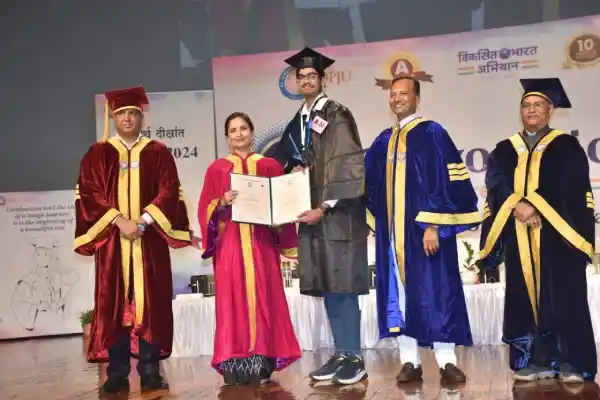
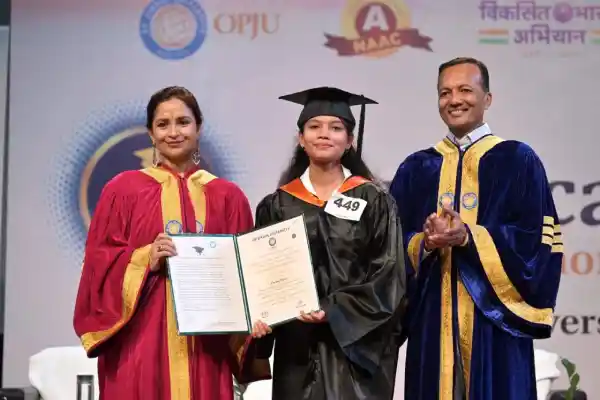
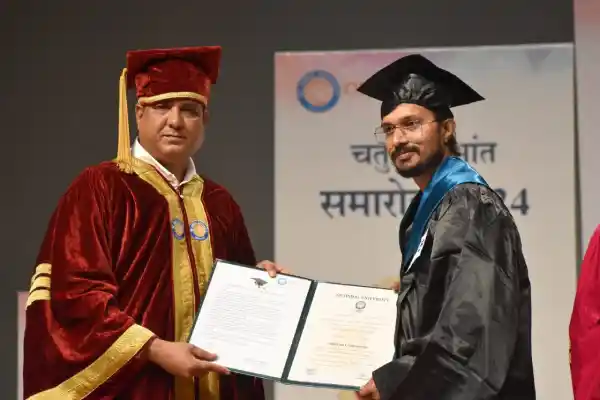
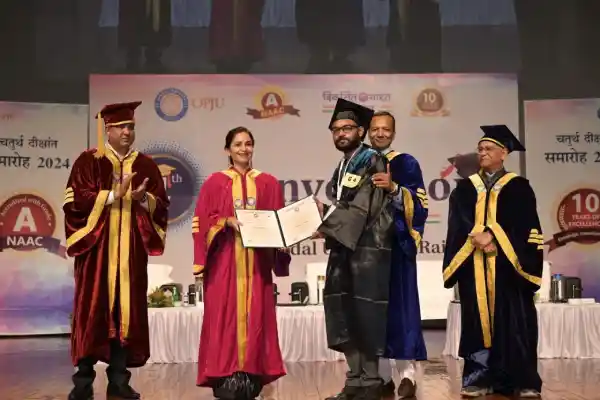
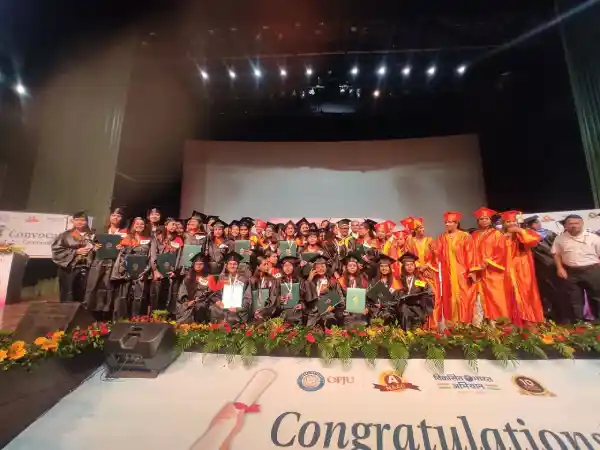
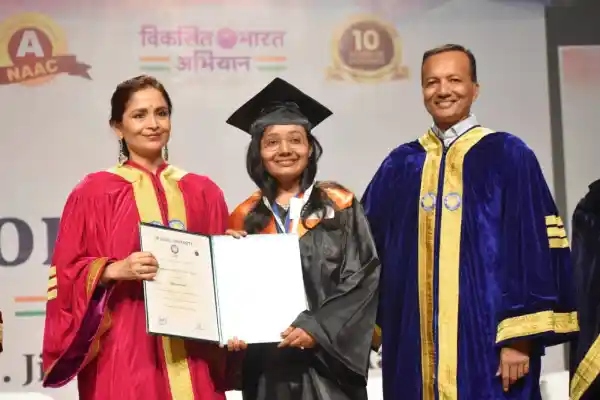
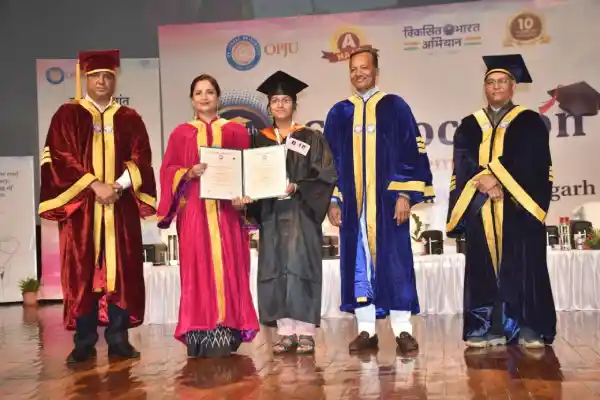
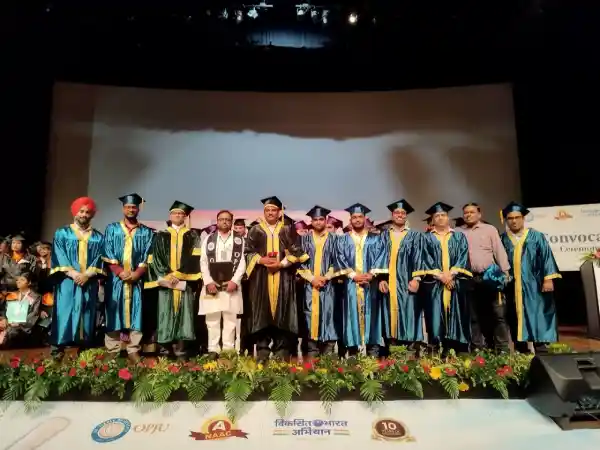
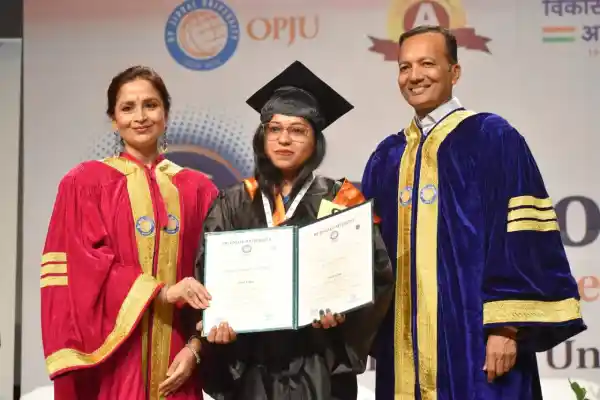
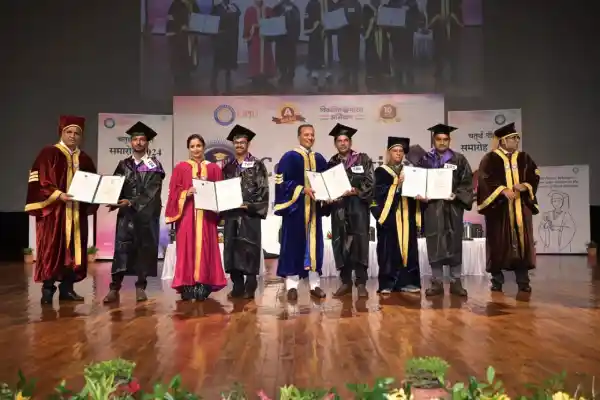
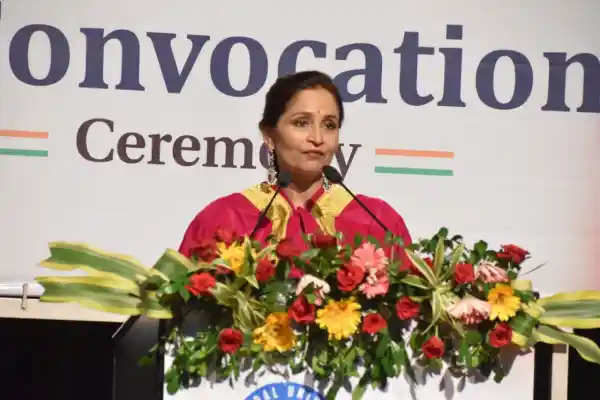
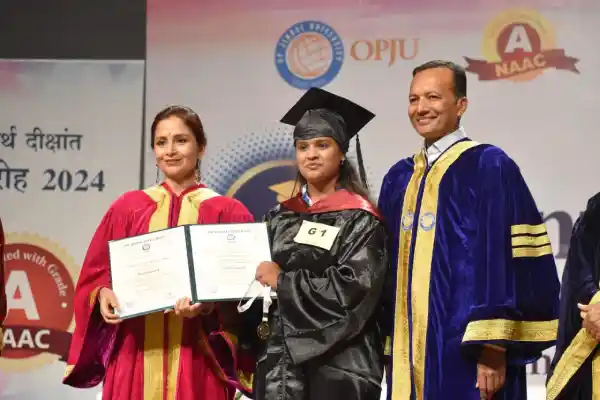
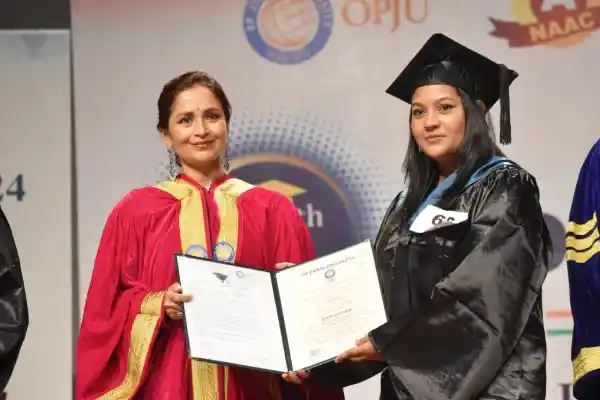
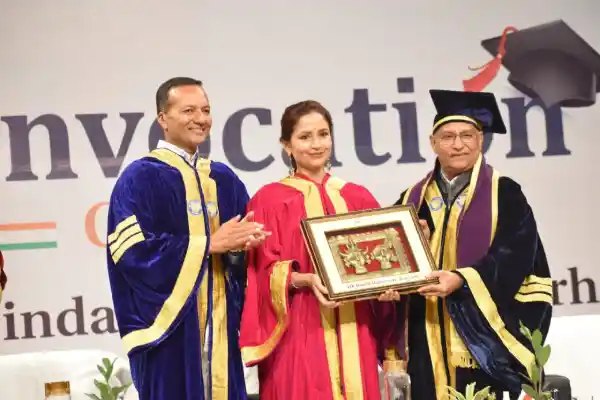
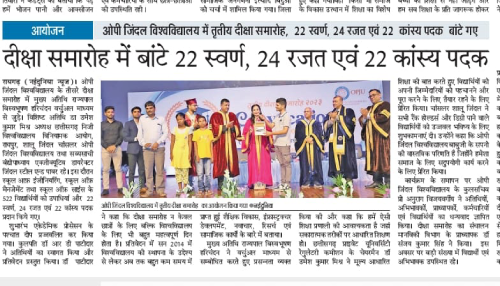
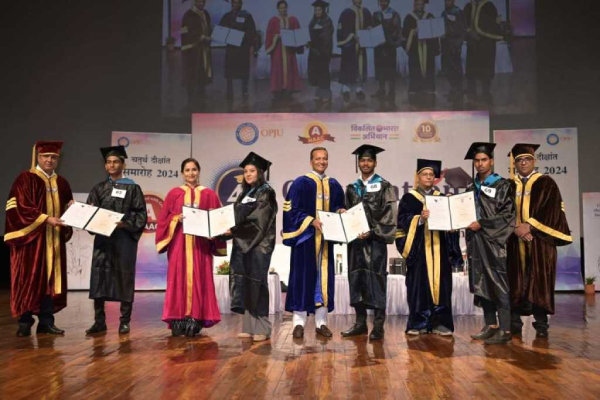
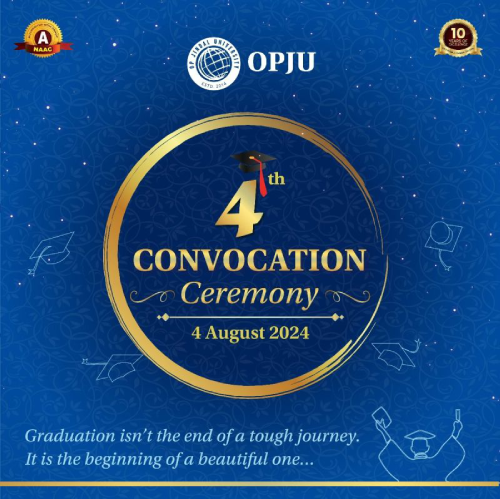

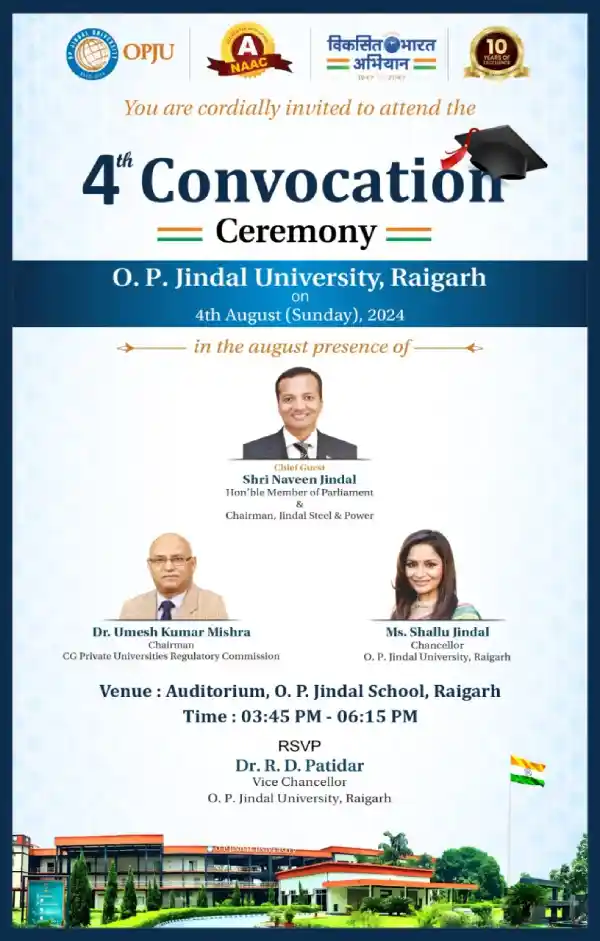
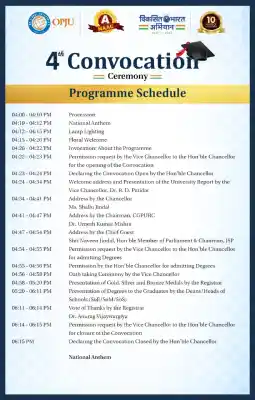

.jpg)

.jpg)
.webp)